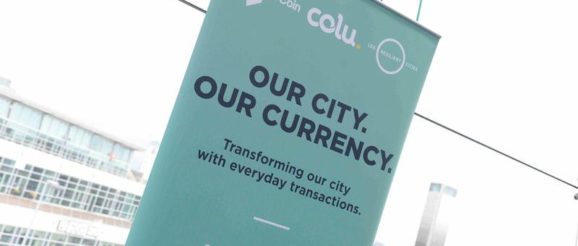UK’s first incentive-based digital currency coming to Belfast | Emerging tech & innovation | Techworld

On the morning 28 August 2018, a fire broke out on the fifth floor of central Belfast’s historic red sandstone Bank Buildings. As chunks of debris fell from the 200-year-old listed building’s walls, a large cordon was erected around the burnt-out structure that divided the centre of Belfast into four quadrants, devastating local businesses and permanently reshaping the surrounding public spaces.
The scene provided a vivid image of the city’s vulnerabilities to Grainia Long, who was two months into a job as Belfast’s first commissioner for resilience when the fire broke out.
“It highlighted the importance of a city that’s easy to get around,” Long tells Techworld from her office in Belfast. “It highlighted the importance of having levers at our disposal for you to incentivise people to shop local and to spend their money and their time in their city centre. That’s where the idea of Belfast Coin came from.”
The Belfast Coin will be the UK’s first incentive-based digital currency when it launches later this year. It will operate as a rewards platform that encourages behaviour that boosts the city’s economy and quality of life by offering residents Belfast Coins in return for activities such as shopping at local businesses, volunteering, civic activity, healthy living, and recycling.
Read next: Tech projects for social good in the UK and beyond
Citizens download the app and connect a debit or credit card. They can then use the digital wallet to make payments directly from their mobile devices at registered shops, cafes, restaurants and other businesses across the city.
“One of the things that we may want to do is to encourage spending in local restaurants,” says Long. “What we could do in that situation is run a campaign whereby if people spend £10 in local restaurants, they might get five coins – the equivalent of £5 – which they will then, in turn, continue to spend locally. So it puts money into the local economy, it keeps that money moving around that economy, and it essentially builds an ecosystem of local businesses, local employers, and local residents all supporting the local economy.”
Developing the system
Long’s job title of commissioner for resilience didn’t even exist until 2018. The role was created to help cities prepare for destructive scenarios, from the “shocks” of floods to the “stresses” of health inequalities.
Her position was funded by the 100 Resilient Cities (100RC) global network, a programme launched by the Rockefeller Foundation in 2013 to address urban challenges, which played a key role in the development of the Belfast Coin.
In January 2019, Long and her colleagues had been working on a plan for a rewards platform when 100RC sent a call out to its members, offering the chance to work with Israeli startup Colu to create a city-wide digital currency. The company’s payment app already operates in London, Liverpool and Israel, but this would be its first deployment with an incentive element.
Belfast was selected as a launch site for the currency and is now working on identifying the behaviours that it wants to encourage and the means by which they could be rewarded. Some of their ideas will be more challenging than others. Rewarding local spending with coins that must be reinvested in the city would only require Colu’s electronic payment system and an internet connection, but incentivising behaviours such as recycling may prove more complex as the actions are harder to validate.
Long hopes the city’s technology network will help the council overcome these challenges.
“What we need is that ecosystem,” she says. “We also need big employers who have staff in the city who are prepared to reward their staff’s behaviour. That might be employers incentivising the use of public transport, for example, or perhaps employers rewarding staff, who shop local, who buy their lunch in local shops.”
Read next: The future of cryptocurrency: Why it’s here to stay
Long is not concerned about any apparent similarities with China’s controversial social credit scheme. The Belfast Coin differs from the Chinese system in that behaviours are rewarded but not punished, through a voluntary tool that Long believes is more like a loyalty scheme than an instrument of state control.
“What we’re saying to local residents is you’ve got the choice,” she says. “If you choose to support local companies and support your city, then we will reward you for doing that, and by rewarding you we’re rewarding the wider city, because what we give you, you will spend in the city. You can’t take that coin elsewhere.
“What we’re constantly doing is moving coins around the city in a way that supports the entire city and essentially benefits everyone. Providing that the choice remains with the resident or the consumer – which it does – then it’s up to everyone to decide how they want to exercise that choice.”
